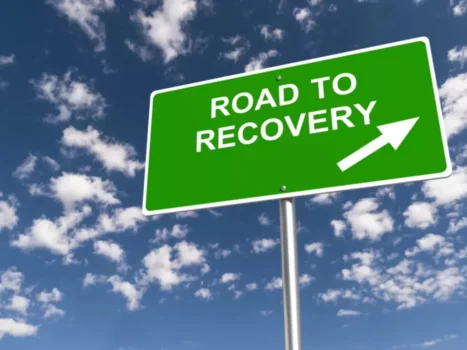
Hydronephrosis is the result of one or two swollen kidneys due to an accumulation of urine. A blockage or obstruction prevents urine from properly draining from the kidney to the bladder. A kidney infection is a type of urinary tract infection (UTI) that starts in the urethra or bladder and moves to one or both kidneys. The how does alcohol affect the kidneys symptoms and severity of a UTI may get worse after drinking alcohol. Drinking alcohol if you already have kidney stones may cause them to move quickly. To keep the kidneys functioning optimally and to maintain functional stability (i.e., homeostasis) in the body, a variety of regulatory mechanisms exert their influence.
Assessment of alcohol consumption
In this review, we focused on the effect of ethyl alcohol on the kidneys and the effect of drinking on patients with CKD, and summarized the clinical and experimental studies. We analyzed and compared the advantages and disadvantages of alcohol consumption for patients with CKD and the contradictions in existing studies, and we hope to provide some information for clinical decision-making and policy formulation. In terms of alcohol’s effects on the kidneys, the National Kidney Foundation (NKF) states that drinking too much alcohol can harm kidney function and worsen existing kidney disease.
- For women, it can increase the risk of breast cancer, impair bone health, and lead to mood changes.
- Age, diabetes, hypertension, hyperlipidemia, and smoking are traditional risk factors of cardiovascular disease in patients with CKD [15–17].
- A Japanese cohort study also found that CKD is an independent risk factor for higher rates of stroke in men and women.
- It’s worth noting that the harmful effects of alcohol may outweigh the potential benefits.
- UA possesses a multifaceted role, such as antioxidant, pro-oxidative, pro-inflammatory, nitric oxide modulating, anti-aging, and immune effects, which are significant in both physiological and pathological contexts.
- The World Health Organization estimates that more than 55% of adults consume alcohol, and 140 million people worldwide have alcoholism [1,2].
Commonly Taken Drugs for Kidney Failure
Different tests are used to check how the kidneys and heart are working. It’s hard to escape the message these days that every sip of wine, every swig of beer is bad for your health. It’s always wise to check with your doctor or dietitian before incorporating alcohol into your diet and it is recommended that you combine your alcohol with food. Finally, if you want to drink alcohol, please discuss this with your pharmacist as some medications do interact with alcohol. From our experience with individuals living with kidney failure, the key is to live first and be a patient second. Some find alcohol helps them to relax in social situations and find without alcohol they feel less enjoyment.
Signs You Have a Broken Heart and Ways To Heal It
Hilden and Svendsen (1975) observed hyponatremia in five patients who drank at least 5 liters of beer per day (L/d) without any other nourishment. Alcohol can produce urine flow within 20 minutes of consumption; as a result of urinary fluid losses, the concentration of electrolytes in blood serum increases. These changes can be profound in chronic alcoholic patients, who may demonstrate clinical evidence of dehydration. A cell’s function https://ecosoberhouse.com/ depends not only on receiving a continuous supply of nutrients and eliminating metabolic waste products but also on the existence of stable physical and chemical conditions in the extracellular fluid1 bathing it. Among the most important substances contributing to these conditions are water, sodium, potassium, calcium, and phosphate. Loss or retention of any one of these substances can influence the body’s handling of the others.
Drinking alcohol with kidney disease
Excess alcohol can have harmful effects on the kidneys or worsen the side effects of your cancer treatment. The kidneys are two bean-shaped organs that filter out waste from your blood. The kidneys also maintain the proper balance of fluid and electrolytes in the body. For these reasons, it’s natural that when your kidneys have to work extra hard to rid the body of excess alcohol, you may experience pain.

What does kidney pain from alcohol feel like?

Drinking alcohol to excess is linked to several health problems, including liver disease and an increased risk of some cancers (not to mention risks from drunk driving or accidental injuries while intoxicated). Another study suggests that using cod liver oil supplements may slightly reduce the risk of cardiovascular conditions like myocardial infarction in participants. Still, more research is needed to confirm how effective cod liver oil is at keeping your heart healthy. High amounts of omega-3 fatty acids in cod liver oil have been shown to improve cardiovascular health by reducing triglycerides (a type of fat) in your body.
Women, older people, and those with smaller bodies should be especially careful. What about the kidney pain some people claim to feel after a night of drinking? According to Dr. Bobart, there’s no research to suggest a link between alcohol and kidney pain. More effective in reaching the target of serum uric acid under 6 mg/ dl compared to allopurinol.

Kidney Pain After Drinking: 7 Possible Causes
- Several epidemiological studies have shown that mild alcohol consumption benefits cardiovascular health (Coate 1993; Kannel and Ellison 1996) by reducing the risk of coronary heart disease (Mukamal et al. 2006).
- Each 4.5-inch-long kidney contains about 250 of the largest collecting ducts, each duct transmitting urine from approximately 4,000 nephrons.
- This 13-year cohort study revealed that participants with social or regular drinking habits had significantly reduced risk of the development of CKD when compared with non-drinkers.
- Some foods that don’t taste salty can have a surprising amount of sodium when you check their nutrition facts label.
Alcohol can worsen the side effects of chemotherapy and other cancer treatments, such as nausea, dehydration, diarrhea, and mouth sores. According to the National Cancer Institute (NCI), there is a widesperad agreement among scientists that alcohol can cause several types of cancer, like head and neck cancer, liver cancer, colon cancer, and breast cancer. Treat gastritis by avoiding alcohol, pain medications, and recreational drugs. Your doctor may prescribe proton pump inhibitors or H2 antagonists to reduce the production of stomach acid.
You may also need to limit your carbohydrate intake if you have diabetes and/or limit saturated fat to help with heart health. Nutrition and healthy eating can be a challenge for anyone, especially if you have kidney disease or heart disease. Your health care professional may prescribe medicines to keep your blood glucose (diabetes) and/or blood pressure in the goal ranges recommended for you.
Risks of Alcohol Abuse with Kidney Disease
When you have liver disease, your body doesn’t balance the flow and filtering of blood as well as it should. This has a harmful effect on your overall health and can increase the chance of complications. In many patients with liver cirrhosis, the kidneys’ ability to create dilute urine is compromised, leading to a state of abnormally low sodium concentration (i.e., hyponatremia). In hyponatremic patients, the amount of fluid retained by the kidneys is disproportionately greater than the amount of sodium retained. In other words, the kidneys’ ability to excrete excess fluid by way of dilute urine is impaired, and too much fluid is reabsorbed. Hyponatremia probably is the single most common electrolyte disturbance encountered in the management of patients with cirrhosis of the liver (Vaamonde 1996).
